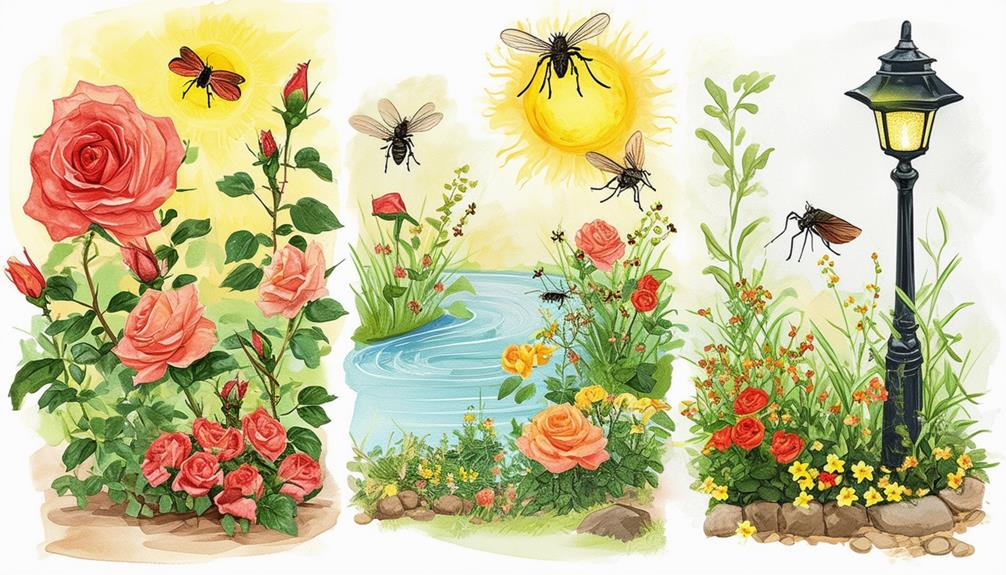Did you know that during the colder months, spiders are more likely to seek refuge inside your Tulsa home? As temperatures drop, you’ll find yourself not just battling the cold but potentially dangerous guests like black widows and brown recluse spiders.
It’s important to seal up those cracks and keep your home clean to discourage their visit. But there’s more to spider control than meets the eye, especially when considering the safety of your family.
Stick around, and let’s uncover some lesser-known strategies that can fortify your home against these unwelcome winter invaders.
Key Takeaways
- Seal entry points around your home to prevent spiders from entering.
- Regularly clean and declutter to reduce spider hiding spots and webs.
- Implement a year-round pest control plan for ongoing spider prevention.
- Consider professional pest control for severe infestations or dangerous spiders.
Common Tulsa Spiders
Tulsa residents often encounter a variety of spiders, including black widows, brown recluses, wolf spiders, jumping spiders, and house spiders, each with unique characteristics and habitats.
Black widows, recognizable by their red hourglass marking, are less commonly seen but notorious for their potent venom. Brown recluses, with their distinct violin-shaped mark, prefer dark, secluded spaces. Wolf spiders, large and hairy, roam freely without webs, showcasing their hunting prowess. Jumping spiders, known for their remarkable eyesight, pounce on their prey with precision.
As common spiders in Tulsa, understanding these species is essential for effective spider control, especially during the winter months when these arachnids seek shelter. For Tulsa residents, knowledge of these spiders fosters a sense of belonging and readiness in managing their presence.
Winter Home Entry Points
As winter approaches, it’s important to identify and seal potential entry points in your home to prevent spiders from seeking refuge indoors. Spiders enter homes through damaged screens, cracks, and gaps in doors and windows during winter. They’re attracted to dark, undisturbed areas such as plants, woodpiles, boxes, and bags, which serve as common hiding spots.
With fall evolving into winter, spider activity increases, not only seeking shelter and warmth but also because it’s their mating season. This leads to a significant uptick in spider presence inside homes. Despite taking precautions, infestations can still occur, underscoring the importance of integrating a year-round pest control plan into your spider prevention strategy.
Preventive Measures
After identifying potential entry points in your home for winter, it’s now important to implement preventive measures to keep spiders at bay. Begin by sealing cracks, holes, and gaps around windows and doors, effectively blocking entryways for these eight-legged intruders.
Keeping your home clutter-free is essential; it reduces hiding spots for spiders seeking shelter during the colder months. Regularly removing spider webs and egg sacs deters spider infestations, signaling to other spiders that your home isn’t a welcoming spider shelter.
Maintaining cleanliness, especially in dark, undisturbed areas, is critical in preventing unwanted guests. To end, implementing a year-round pest control plan ensures that spider infestations are addressed promptly, safeguarding your home against future invasions during winter.
Immediate Removal Strategies
When tackling a spider infestation during the cold months, immediate action to remove webs and egg sacs is key to preventing their spread in your home. Start by vacuuming corners, ceilings, and hidden areas where spider populations thrive. This immediate removal strategy not only clears existing webs but also disrupts the life cycle of spiders.
After vacuuming, applying a spider repellent spray can deter future intruders from making your home their winter retreat. Don’t forget to seal cracks, gaps, and openings in your home’s exterior to block entry points.
While these steps are effective, sometimes the situation calls for Nature Guard pest control. They offer safe and effective spider removal services, ensuring your home remains a comfortable and spider-free zone this winter.
Professional Intervention Options
While immediate removal strategies offer a great start, sometimes the expertise of professional pest control companies becomes necessary for the safe and thorough eradication of venomous spiders in Tulsa homes during the winter.
Professional pest control services specialize in identifying dangerous spiders, such as black widows and brown recluse, ensuring their safe removal. Expert technicians excel at locating hidden brown recluse spiders in hard-to-reach areas, a critical step for maintaining a safe home environment.
Seeking professional assistance, especially for jumping spider infestations, guarantees effective spider control measures are put in place. Professional intervention isn’t just about eradication; it’s about ensuring your home remains a safe haven from venomous spiders through the cold months, fostering a sense of belonging and safety for all Tulsa residents.
Frequently Asked Questions
Should You Spray for Spiders in the Winter?
Ironically, spraying for spiders in winter isn’t your best bet. Instead, focus on sealing entry points and using natural repellents indoors. For lasting effectiveness, consult professionals for safe, targeted treatments and embrace both DIY and outdoor strategies.
Why Are There so Many Spiders in My House in the Winter?
You’re seeing more spiders in your house this winter because they’re drawn to its warmth, indoor humidity, and available food sources. Cluttered spaces, outdoor lighting, window cracks, and basement hideouts offer perfect spots for their seasonal migrations.
How Do Spiders Deal With Winter?
Spiders weave their winter survival tale through hibernation, silk insulation, and frost resistance. They adjust webs, regulate temperature, and enter diapause to conserve energy, showcasing remarkable cold tolerance and survival techniques against winter’s harsh embrace.
Should You Do Pest Control in Winter?
Yes, you should do pest control in winter. Freezing temperatures drive indoor pests, making winter preparation vital. Schedule a pest inspection, consider professional exterminators, and implement safety measures like bait stations and exclusion techniques.





